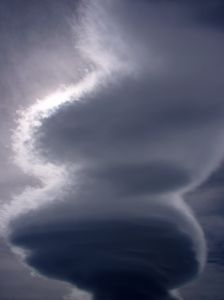 The world is still reeling from the devastating cyclone in Myanmar that has claimed nearly 22,500 lives. Many of those lives were taken due to the resulting tidal wave that came as a result of the storm.
The world is still reeling from the devastating cyclone in Myanmar that has claimed nearly 22,500 lives. Many of those lives were taken due to the resulting tidal wave that came as a result of the storm.
One question that has come up by a reader of the Home Blog, who wishes to remain anonymous, concerns the definition of a cyclone, and if it is something that most people have to worry about. While I am by no means an expert on cyclones, I did a little research and found out the following information.
Scientists are actively studying cyclones, hurricanes, tornados and typhoons to learn more about how they form and what causes them. All of these weather phenomena are related.
A cyclone is one of the deadliest and most serious types of weather phenomena. This is a type of storm that is characterized by inward spiraling winds. There can be many different types of cyclones, and some storms that are called cyclones really aren’t. Most of the time, when the term cyclone is used, it is often referring to a tropical cyclone, a low-pressure storm over tropical or sub-tropical waters. About 80 to 90 percent of cyclones start over tropical waters. Cyclones usually feature thunder and lightening. Cyclones also have extremely strong winds, tornadoes, torrential rain, high waves, and storm surges. All of this can cause tidal waves and substantial flooding.
Hurricanes and cyclones are similar types of storms, although hurricanes occur in the Atlantic ocean or Caribbean and tend not have a specific season. Tropical cyclones form in the Indian Ocean and can occur all the year round. They also tend to be more vigorous than are hurricanes.
Tornados are also related to cyclones. Tornados, however, are usually over land masses instead of water. A tornado may start out like a cyclone with rotation in the sky, but something causes it to shift vertically and “touch down” to form the classic tunnel.
Are there any weather experts out there who can give us more information?
Mary Ann Romans writes about everything related to saving money in the Frugal Blog, technology in the Computing Blog, and creating a home in the Home Blog. You can read more of her articles by clicking here.
Related Articles:

